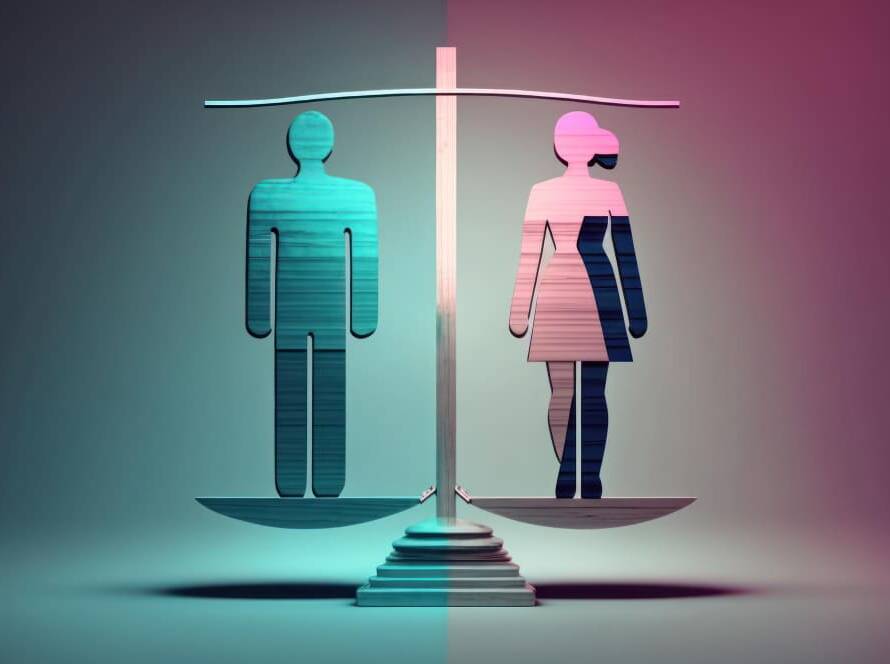Empowering women is about granting them the autonomy to control their lives, make informed decisions, and access equal resources and opportunities. It’s a journey towards creating an inclusive society where women stand shoulder to shoulder with men, ensuring their voices resonate and their rights remain safeguarded. The facets of empowerment span education, economics, politics, and social sectors. The ultimate goal? A world where women thrive without any gender-based constraints.
Different Facets of Women’s Empowerment:
- Economic Empowerment: Economic empowerment is more than just earning a paycheck. It encompasses women’s equal participation in economic activities, ensuring they have access to education, job opportunities, fair pay, and financial services. It’s about breaking the barriers that prevent women from becoming entrepreneurs or leaders in the corporate world.
- Social Empowerment: This dimension focuses on women’s active participation in social and cultural spheres, devoid of discrimination or violence. It emphasizes their right to education, healthcare, and legal services. It’s about changing societal norms that have historically marginalized women and ensuring they have a voice in their communities.
- Political Empowerment: Here, the emphasis is on women’s equal political participation. This includes voting rights, the ability to contest elections, and involvement in policy-making. It’s about ensuring that women are represented at all levels of governance and that their perspectives are considered in the decision-making process.
- Educational Empowerment: Education is a powerful tool for change. This is about ensuring women can access quality education at all levels, equipping them to make informed decisions, challenge societal norms, and contribute to society.
- Health Empowerment: This facet emphasizes women’s right to healthcare and making informed decisions about their well-being, including reproductive health. It’s about ensuring that women have the resources and knowledge they need to take care of their physical and mental health.
Why Empower Women?
- Gender Equality: Empowering women is a stepping stone to achieving gender equality, a basic human right. It’s about recognizing that women have the same rights and opportunities as men and working to eliminate the barriers that prevent them from realizing their full potential.
- Economic Progress: An empowered woman contributes significantly to the economy, fostering overall development. When women are given the tools and resources they need, they can drive economic growth and innovation.
- Social Justice: Empowerment is a pathway to a just society, countering the discrimination and violence women often face. It’s about challenging and changing the societal norms that perpetuate gender inequality.
- Health Benefits: Empowered women, with access to education and healthcare, can better care for themselves and their families. They can make informed decisions about their health and well-being, leading to healthier communities.
- Sustainability: Women’s empowerment is pivotal for sustainable development. Empowered women can play a crucial role in addressing environmental challenges, alleviating poverty, and fostering social justice.
Promoting Women’s Empowerment:
Several factors can bolster women’s empowerment:
- Education: A cornerstone for empowerment, providing knowledge and skills. It’s about ensuring that girls have the same educational opportunities as boys and that they are encouraged to pursue their passions and interests.
- Employment Opportunities: Economic empowerment through job opportunities. It’s about creating a level playing field where women have the same career opportunities as men.
- Participation in Various Fields: Involvement in politics, defense, sports, etc., challenges traditional gender norms. It’s about celebrating women’s achievements in all fields and ensuring they have the resources and support they need to succeed.
- Equal Opportunities: Ensuring women have equal opportunities in all societal aspects. It’s about recognizing the barriers that women face and working to eliminate them.
- Media Access: Keeping women informed and enabling them to advocate for their rights. The media plays a crucial role in shaping societal perceptions, and it’s essential that women’s voices are represented.
- Freedom of Expression and Movement: Essential for empowerment and societal participation. It’s about ensuring that women can speak their minds without fear of retaliation and that they can move freely in their communities.
- Nutrition and Sanitation: Fundamental for women’s health and active participation in society. It’s about ensuring that women have access to clean water, nutritious food, and sanitation facilities.
- Decision-making Autonomy: Empowering women to make personal decisions. It’s about recognizing that women have the right to make decisions about their bodies, their careers, and their lives.
- Introduction to Self-Help Groups: Providing a supportive network for women. These groups can offer women a platform to share their experiences, access resources, and support one another.
- Recognizing Women’s Labor: Acknowledging and supporting women’s unpaid care work. It’s about recognizing the value of the work that women do in their homes and communities and ensuring they are compensated fairly.
Challenges to Women’s Empowerment:
Despite the progress, challenges like patriarchal mindsets, limited education access, economic disparities, and violence remain barriers to women’s empowerment in India. Tackling these challenges requires concerted efforts from the government, society, and individuals



